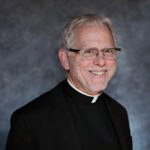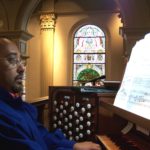Wedding Music: Guiding the Conversation
“Among the many signs and symbols used by the Church to celebrate its faith, music is of preeminent importance. As sacred song united to words it forms an integral part of the solemn liturgy. Yet the function of music is ministerial; it must serve and never dominate. Music should assist the assembled believers to express and share the gift of faith that is within them and to nourish and strengthen their interior commitment of faith. It should heighten the texts so that they speak more fully and more effectively. The quality of joy and enthusiasm which music adds to community worship cannot be gained in any other way. It imparts a sense of unity to the congregation and sets the appropriate tone for a particular celebration.”–Music in Catholic Worship, #23 (statement of the Bishops’ Committee on the Liturgy, 1972)
Weddings and funerals are two celebrations that pose unique pastoral and music challenges for the pastor and the parish musician. This is particularly true at weddings, when the secular culture often collides with and and attempts to impose upon the sacred. During the planning of wedding celebrations, many pastors and musicians are frequently challenged to accept pop and contemporary music selections for the wedding liturgy.
While the planning of weddings is not the ideal time for catechesis, there must be a stronger effort to ensure that the sacred liturgy does not become an “anything goes” celebration. Just as it would be out of place for hymns to be sung at the reception, it is out of place and inappropriate to sing or play instrumental versions of secular love songs during the wedding.
The information below is an effort to assist pastors and musicians to provide information to couples planning the music and liturgical elements of their wedding. Every parish should evaluate its own available music resources and make written recommendations to the couple, and is encouraged to develop parish guidelines for these liturgies. This article may also spark conversations to develop parish guidelines if they are not already in place.
Evaluating music for liturgy
In the document, Sing to the Lord, the U.S. Bishops’ Committee on the Liturgy recommends that the music used in all types of worship be evaluated on three levels: musically, liturgically, and pastorally.
MUSICALLY: Is the music technically, aesthetically and expressively good?
LITURGICALLY: Does the music respect the nature of the liturgy itself with the participants assuming different roles in the various levels of communal prayer?
PASTORALLY: Does the music help the people involved to express their faith in their particular place, age and culture?
Theological adequacy must also be used in the selection of music. When judging musical texts, one should be guided by the following wording from the proposed “Directory for Music and the Liturgy for Use in the Dioceses in the United States of America” (USCCB, 2006), which in part, states that “Individual songs should be consonant with Catholic teaching and free from doctrinal error.” Words have meaning, especially in emphasizing the transcendent realities occurring during Mass and the sacrament of Marriage.
When applying these principles to the wedding service, it is helpful to consider the music to be selected under three categories: liturgical, supplementary, and instrumental music. [Items marked with an asterisk (*) apply only when the Eucharist is celebrated.]
Liturgical Music
These include those sung parts of the worship in which all present should ideally participate.
At most weddings the actual procession is accompanied with instrumental music. Some parishes have the custom of singing an opening antiphon or hymn when all have arrived at their places following the processional. This “Opening Song” can be important to set the atmosphere for the celebration and in helping people to become conscious of themselves as a worshipping community.
The Responsorial Psalm follows the first reading and should be sung by a cantor, with the congregation singing the antiphon (refrain.)
The Gospel Acclamation prepares the congregation to hear the Word of God proclaimed in the Gospel reading. After the cantor or choir sings the alleluias, the assembly repeats them. Then a verse is sung by the cantor, and all repeat the alleluias a second time. In the absence of a cantor, the priest could intone the alleluias (with or without accompaniment).
The Eucharistic Prayer Acclamations* (Holy, Memorial, Amen) are the most important sung responses. It is also means of involving the congregation in the proclamation of the Eucharistic Prayer. Choose a setting like the Roman Missal chants or Mass of Creation that may be familiar to many congregations.
A Communion Antiphon/Song* accompanies the distribution of communion – it expresses the oneness of the couple and the assembly in the Eucharistic Lord. A short, simple refrain is best for the congregation with the cantor or choir singing the verses.
Supplementary Music
This category includes songs for which there are no specified texts nor any requirement that there be a spoken or sung text (for example, during the preparation of the gifts*, before or after the communion antiphon*, and during the recessional). Here, a choir or a soloist/instrumentalist can play a fuller role.
They should help the community participate in the liturgical action and prayer which is taking place. The music should be suitable for use in a religious, liturgical service whose primary concern is the worship of God which achieves the sanctification of people. The lyrics of the songs should be drawn from Sacred Scripture and other liturgical sources and should express a Christian concept of love, since the liturgy of marriage celebrates not only the love between two persons, but also their relationship to God who is Love.
There are also many hymns found in Catholic hymnals that are common to most Christian denominations. These can be especially useful for celebrations at which many non-Catholic Christians are present, as long as they are evaluated musically, liturgically, pastorally, and theologically.
Instrumental Music
Instrumental music performed on the organ or other instruments can provide suitable accompaniment during certain parts of the service including the processional and the recessional, as well as during the preparation of the gifts* and before or after the communion song.* In most cases, pieces written specifically for the instrument to be used will sound the best. However, if instrumental transcriptions of vocal pieces are used, the criteria for choosing supplementary songs should be applied.
Using ‘Popular’ Music
The use of popular love songs at weddings presents many challenging questions. Some couples request using songs they heard on the radio or television in their wedding ceremony. Couples must be challenged to honestly answer the question: “Will this music help us and the rest of the assembly to lift up our hearts in prayer?”
Each and every text considered for the wedding should be identifiable as prayer. If it cannot, then it is out of place in a liturgical context. Thus, a song which highlights the Christian dimension of human love must always get priority; the litmus test is straight forward:
- A song which speaks directly of the divine / religious dimension of love is most suitable at a Christian marriage;
- A song which negates either explicitly or implicitly the divine / religious dimension of love is unsuitable at a Christian marriage.
The priest with input from the parish musician should discuss the text and musical context of pieces under consideration by the wedding party. Quite often, the priest most effectively helps a couple evaluate whether the text of the songs they are considering reflect the faith they wish to express.
It is unfair for the priest to tell the bride and groom, “This is all right with me, but you should discuss it with the organist/music director.” It is unfair for the pastor to tell the musician, “The wedding is the bride’s day; let her have what she wants.”
Rather, the priest should offer guidance and ask the couple, “Can you pray these words? Will the community that will gather around you on your wedding day understand the sacred meaning of the reason for your wedding?” These questions will focus planning of the liturgy on the sacrament(s) taking place.
Source/Reference Information
- Sing to the Lord
- Music in Divine Worship
- GIRM
- Wedding Music Guidelines (Archdiocese of Indianapolis)




